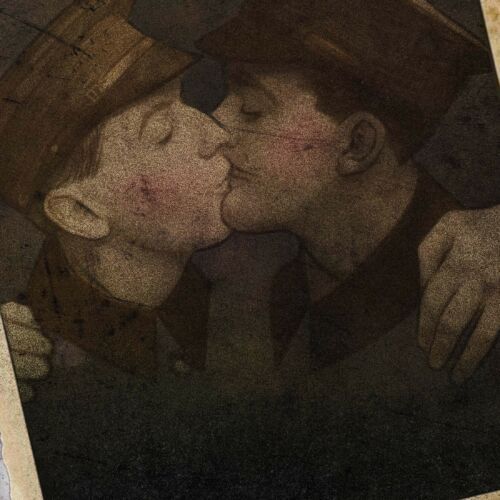LGBTQ+ community among pirates and in the trenches of world wars
An exhibition on pirates has opened at the National Maritime Museum in Cornwall. The exhibits collected, however, do not always replicate the traditional image of the maritime pirate, as they depict active female pirates and pirates from the LGBTQ+ community. According to one of the exhibition’s slogans, “Pirates existed in the shadows, on the margins of society – subverting social conventions and creating their own counterculture”, and figures such as Anne Bonny, Mary Read and John “Calico Jack” Rackham continue to “queerly influence”. The exhibition also addresses the issue of pirates from communities of colour that were underrepresented in the community, the importance of personal freedom for the sea robbers and their code of honour.
In Alice Winn’s “In Memoriam” and Luke Turner’s “Men at War: Loving, Lusting, Fighting, Remembering 1939-1945”, the authors address hitherto overlooked queer elements in the history of the First and Second World Wars and challenge heteronormative, masculine notions of war. The themes of gender and heroism during armed conflict come to the fore here.
“In Memoriam” is a love story between two young officers set in the trenches of the First World War. During the Great War, 270 British soldiers were court-martialed for “gross indecency”, as then illegal homosexual activities were called. Luke Turner, in contrast, challenges the ideal of the 100 per cent male hero in his book. Based on true stories, he depicts what roles men with less clearly defined sexual and gender identities may have played in the fight against fascism.























